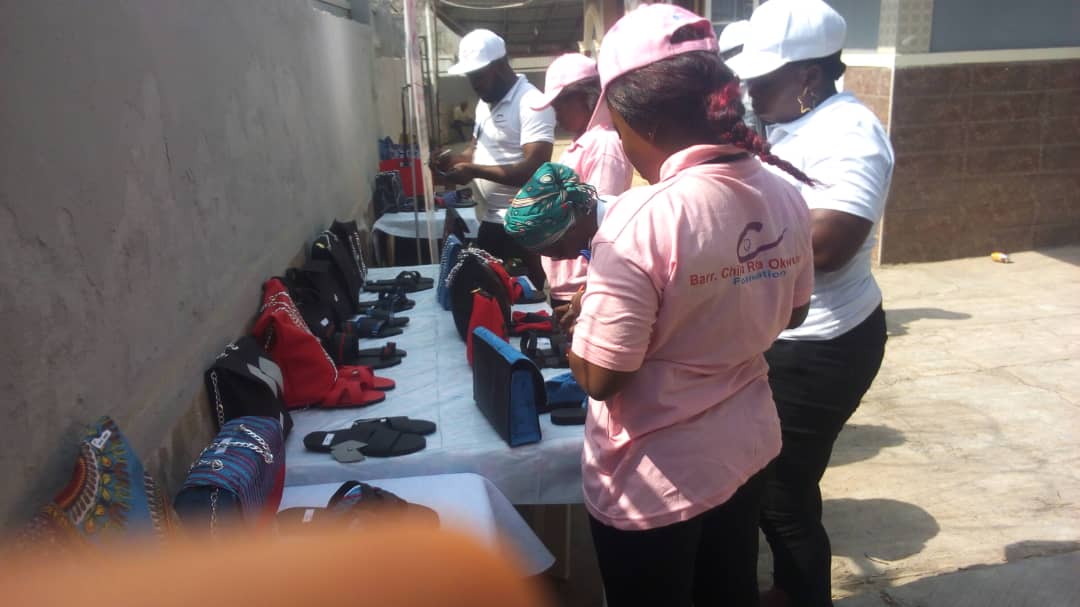Bracing the odds to eke out a living
Joy Onunwa is a first-year university student, and is looking to make money on the side when school reopens by selling self-made shoes and bags. “I will be using my skills, and selling to my fellow students,” she says. She is one of 13 girls and women who recently completed a two-week training in the […]

The training comes at a time when local hand-made goods are gaining popularity on the market and rivalling imported, brand-name accessories.
Joy Onunwa is a first-year university student, and is looking to make money on the side when school reopens by selling self-made shoes and bags.
“I will be using my skills, and selling to my fellow students,” she says.
She is one of 13 girls and women who recently completed a two-week training in the craft of making shoes and bags, mostly using local African fabrics.
The training to empower girls and women who show talent for fashion is the legacy of Chika Okwuosah, an only child who died last year of a brain tumour at age 31.
A tribute to her last year called her the “Lady who wanted to beat Gucci.” She trained as a lawyer, then gave it up to fulfill her aspiration to be a “renowned fashion designer and a catalyst for social, educational and economic empowerment of women and girls.”
The Chika Rita Okwuosah Foundation to immortalize her is to support female startups in beauty and fashion design to develop skills and access funding to grow. It has instituted an annual award of excellence for the best female graduating student from the Nigeria Law School.
This year, it started out with training of 13 girls and women, selected after rigorous screening and interview to undergo a daily seven-hour training for two weeks.
“They were so eager, so willing. They got here before 10am and stayed beyond closing till 5pm,” says Nonye Okwuosah, mother of Chika and chief executive of the foundation.
“I have told them not to drop their ideas. These days there are lots of people without jobs. I have told them to continue to practise to perfection. Their work and products encourage us to train more people in future.”
Joseph Matthew, a craftsman in the business of shoes and bags for over a decade, says the skills the girls have learnt and will continue to practise places them in a good position on the accessories market.
“This work puts food on my table, pays my rent, furthered my education and I contested and lost a seat election in Kogi state. What salary will give me all this?” he says.
One student left her banking job for two weeks to attend the training-and is ready to become self employed and grow her business.
The training comes at a time when local hand-made goods are gaining popularity on the market and rivalling imported, brand-name accessories.
“’The fastest growing economies are local entrepreneurs who produce at grass level better than the corporates,’” says Matthew. He supplies shoes and bags by the hundreds to exporters, and says the perception toward handmade goods is changing.
That is an aspiration Adaobi Meka hopes to reach. She’s been a student at the National Open University, is pregnant and presently a stay-at-home mother, but the want for more for herself propelled her to sign up for the training.
“It is something I have wanted to do. I have a passion for it. I have always wanted to start something on my own, to be self employed,” she says.
“When I got to know about this, and then that it was something I loved doing, I had to apply.”
